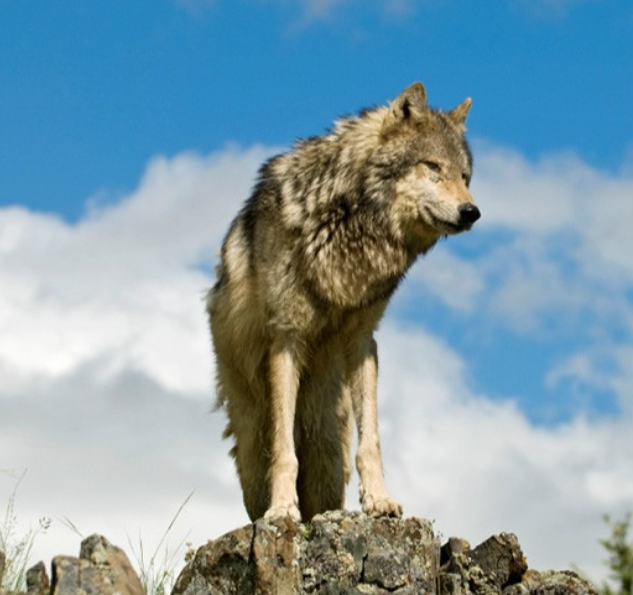
- Details
- By Native News Online Staff
A proposed bill in Congress aims to remove gray wolves from the Endangered Species List. Introduced by Representatives Lauren Boebert (R-CO) and Tom Tiffany (R-WI), the Pet and Livestock Protection Act seeks to transfer gray wolf management to individual states and prevent federal judicial review from reinstating protections.
For many Native American communities, wolves hold deep cultural and spiritual significance. Wolves are often revered in Native American mythology and are seen as symbols of strength, loyalty, and endurance. They are considered to be kin, and their protection is intertwined with the preservation of cultural heritage.
In 2020, the Trump administration issued a rule delisting gray wolves, citing recovery goals. However, in 2022, a federal judge overturned this rule, reinstating protections due to concerns about sustainable populations. The current bill aims to reissue the 2020 delisting and shield it from judicial challenges.
Gray wolves are a keystone species, essential to ecosystem balance. Without federal protections, states would determine management practices, which may lead to increased lethal control measures. For instance, Wyoming's management plan reported at least 352 wolves as of December 2023, with state officials highlighting successful population objectives. However, concerns persist about potential aggressive control methods in certain states, potentially undermining long-term recovery efforts.
The presence of wolves in an ecosystem can lead to a phenomenon known as a trophic cascade, where the effects of their predation ripple through the ecosystem, benefiting numerous other species, including plants, birds, and even fish.
The reintroduction of wolves to Yellowstone National Park in the 1990s is a prime example of this. Before wolves were reintroduced, overgrazing by elk led to the degradation of riverbanks and the loss of vegetation. After wolves were brought back, their predation on elk allowed vegetation to recover, which stabilized riverbanks and provided habitat for other wildlife.
The nomination of Brian Nesvik, former director of the Wyoming Game and Fish Department, to lead the U.S. Fish and Wildlife Service has raised concerns among environmental groups. Critics cite his history with controversial wildlife management practices, including incidents involving wolf killings in Wyoming.
Maintaining federal protections under the Endangered Species Act is crucial to ensure consistent and science-based management of gray wolf populations across all states.
More Stories Like This
Gwich'in Tribal Governments Submit Comments Challenging Fish and Wildlife Service's Inadequate Environmental Review of Arctic Refuge Snow RoadRappahannock Tribe Challenges 9M-Gallon Water Plan
Feds release draft long-term plans for Colorado River management
Apache Leader Walks 60 Miles to Court Hearing That Will Decide Fate of Sacred Oak Flat
Rappahannock Tribe Raises Sovereignty and Environmental Concerns Over Caroline County Water Permit
Help us defend tribal sovereignty.
At Native News Online, our mission is rooted in telling the stories that strengthen sovereignty and uplift Indigenous voices — not just at year’s end, but every single day.
Because of your generosity last year, we were able to keep our reporters on the ground in tribal communities, at national gatherings and in the halls of Congress — covering the issues that matter most to Indian Country: sovereignty, culture, education, health and economic opportunity.
That support sustained us through a tough year in 2025. Now, as we look to the year ahead, we need your help right now to ensure warrior journalism remains strong — reporting that defends tribal sovereignty, amplifies Native truth, and holds power accountable.
 The stakes couldn't be higher. Your support keeps Native voices heard, Native stories told and Native sovereignty defended.
The stakes couldn't be higher. Your support keeps Native voices heard, Native stories told and Native sovereignty defended.
Stand with Warrior Journalism today.
Levi Rickert (Potawatomi), Editor & Publisher


